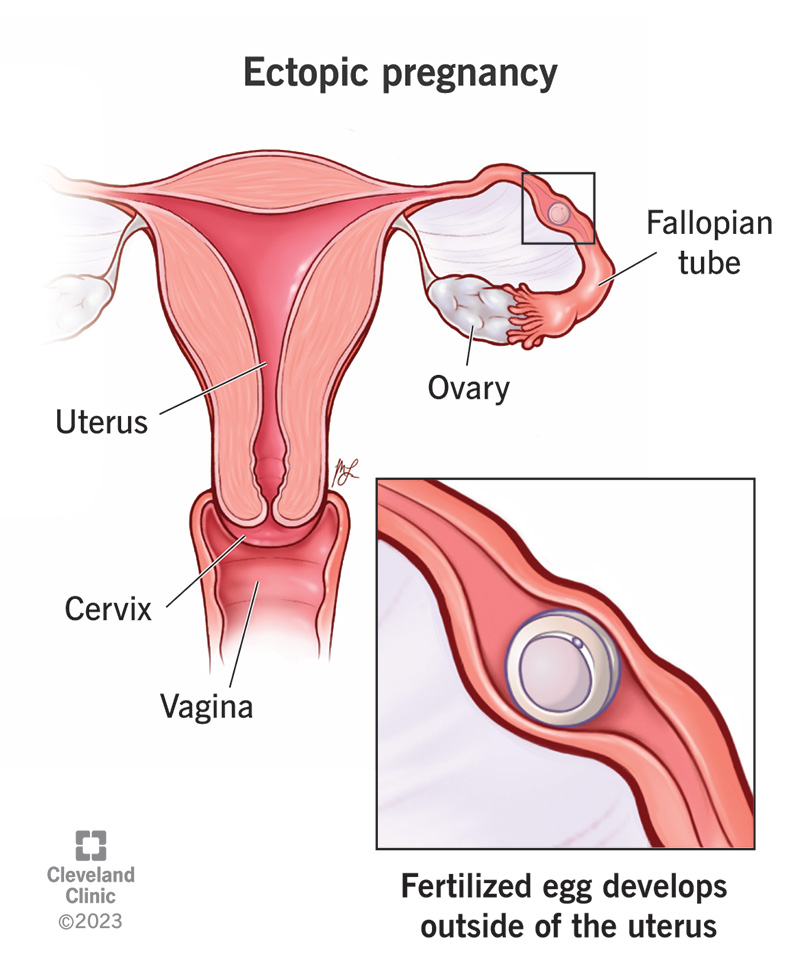Tubal Pregnancy: Symptoms, Diagnosis, and Treatment
Introduction
A tubal pregnancy, also known as an ectopic pregnancy, occurs when a fertilized egg implants outside the uterus. The fallopian tubes are the most common site for ectopic pregnancies, accounting for approximately 95% of cases. Other less common sites include the ovaries, cervix, and abdominal cavity.
Tubal pregnancies are a serious medical condition that can lead to life-threatening complications if not diagnosed and treated promptly. The symptoms of a tubal pregnancy can vary depending on the stage of the pregnancy and the location of the implantation.
Symptoms
The symptoms of a tubal pregnancy can be similar to those of a normal pregnancy, including:
- Missed period
- Nausea and vomiting
- Breast tenderness
- Fatigue
However, as the tubal pregnancy progresses, additional symptoms may develop, including:
- Abdominal pain: This is the most common symptom of a tubal pregnancy. The pain is typically sharp and one-sided, and it may worsen with movement or intercourse.
- Vaginal bleeding: This is another common symptom of a tubal pregnancy. The bleeding is usually light and irregular, but it can become heavier as the pregnancy progresses.
- Shoulder pain: This is a less common symptom of a tubal pregnancy. It occurs when blood from the ruptured fallopian tube irritates the diaphragm.
- Lightheadedness or dizziness: This can be a sign of internal bleeding.
- Shock: This is a life-threatening condition that can occur if the fallopian tube ruptures and causes severe bleeding.
Diagnosis
A tubal pregnancy can be diagnosed based on a combination of symptoms, physical examination, and ultrasound.
- Symptoms: The doctor will ask about your symptoms, including when your last period was, when you first noticed symptoms, and the severity of your pain.
- Physical examination: The doctor will perform a physical examination to check for signs of a tubal pregnancy, such as abdominal tenderness and vaginal bleeding.
- Ultrasound: This is the most definitive way to diagnose a tubal pregnancy. An ultrasound uses sound waves to create images of the uterus and fallopian tubes. This can help the doctor to see if there is a pregnancy outside the uterus.
Treatment
The treatment for a tubal pregnancy depends on the stage of the pregnancy and the location of the implantation.
- Medical treatment: If the tubal pregnancy is small and has not ruptured, it may be treated with medication. This medication, called methotrexate, works by stopping the growth of the pregnancy.
-
Surgery: If the tubal pregnancy is large or has ruptured, surgery is necessary to remove the pregnancy and repair the fallopian tube. There are two main types of surgery for a tubal pregnancy:
- Laparoscopy: This is a minimally invasive surgery that is performed through small incisions in the abdomen.
- Laparotomy: This is a more invasive surgery that is performed through a larger incision in the abdomen.
Complications
Tubal pregnancies can lead to a number of serious complications, including:
- Rupture of the fallopian tube: This is the most serious complication of a tubal pregnancy. It can cause life-threatening bleeding and internal damage.
- Infection: A tubal pregnancy can become infected, which can lead to sepsis.
- Infertility: A tubal pregnancy can damage the fallopian tube, which can make it difficult or impossible to get pregnant in the future.
Prevention
There is no sure way to prevent a tubal pregnancy, but there are some things you can do to reduce your risk, including:
- Using contraception: Contraception can help to prevent pregnancy, including ectopic pregnancies.
- Getting regular pelvic exams: Pelvic exams can help to identify and treat any problems with your reproductive organs, including tubal pregnancies.
- Avoiding smoking: Smoking increases your risk of a tubal pregnancy.
- Limiting your number of sexual partners: Having multiple sexual partners increases your risk of sexually transmitted infections (STIs), which can damage the fallopian tubes and increase your risk of a tubal pregnancy.
Conclusion
Tubal pregnancies are a serious medical condition that can lead to life-threatening complications. The symptoms of a tubal pregnancy can vary depending on the stage of the pregnancy and the location of the implantation. If you think you may have a tubal pregnancy, it is important to seek medical attention immediately.
